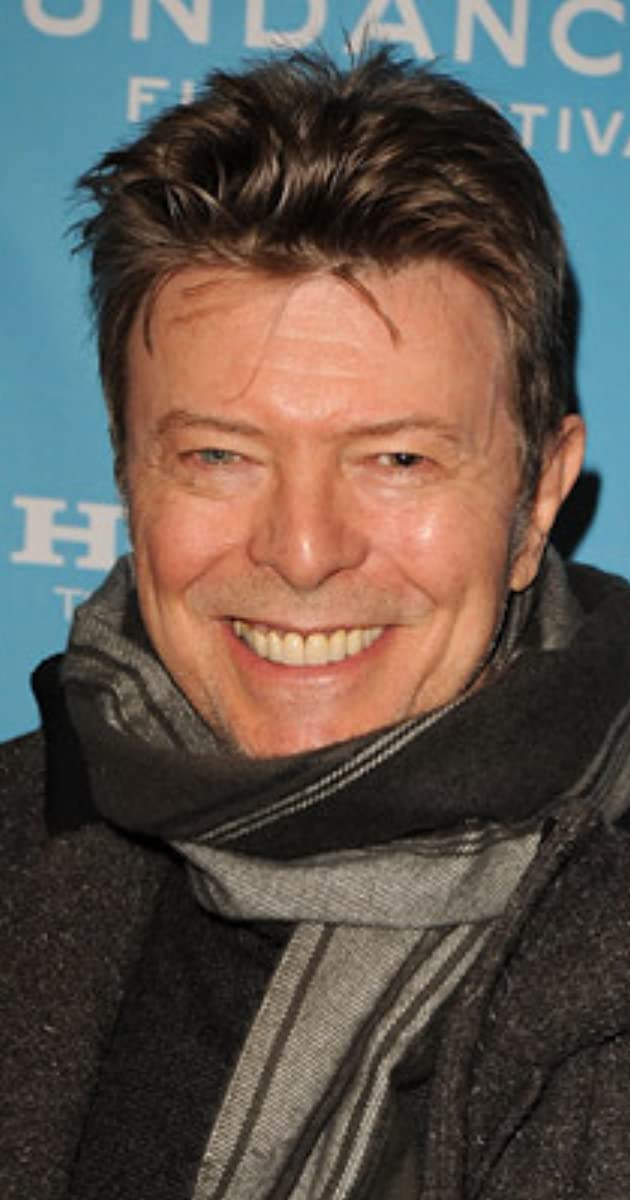
David Bowie was one of the most influential and prolific writers and performers of popular music, but he was much more than that; he was also an accomplished actor, a mime and an intellectual, as well as an art lover whose appreciation and knowledge of it had led to him amassing one of the biggest collections of 20th century art.
Born David Jones, he changed his name to Bowie in the 1960s, to avoid confusion with the then well-known Davy Jones (lead singer of The Monkees). The 1960s were not a happy period for Bowie, who remained a struggling artist, awaiting his breakthrough. He dabbled in many different styles of music (without commercial success), and other art forms such as acting, mime, painting, and play-writing. He finally achieved his commercial breakthrough in 1969 with the song “Space Oddity,” which was released at the time of the moon landing. Despite the fact that the literal meaning of the lyrics relates to an astronaut who is lost in space, this song was used by the BBC in their coverage of the moon landing, and this helped it become such a success. The album, which followed “Space Oddity,” and the two, which followed (one of which included the song “The Man Who Sold The World,” covered by Lulu and Nirvana) failed to produce another hit single, and Bowie’s career appeared to be in decline. However, he made the first of many successful “comebacks” in 1972 with “Ziggy Stardust,” a concept album about a space-age rock star. This album was followed by others in a similar vein, rock albums built around a central character and concerned with futuristic themes of Armageddon, gender dysfunction/confusion, as well as more contemporary themes such as the destructiveness of success and fame, and the dangers inherent in star worship. In the mid 1970s, Bowie was a heavy cocaine abuser and sometime heroin user.
In 1975, he changed tack. Musically, he released “Young Americans,” a soul (or plastic soul as he later referred to it) album. This produced his first number one hit in the US, “Fame.” He also appeared in his first major film, The Man Who Fell to Earth (1976). With a permanently-dilated pupil and skeletal frame, he certainly looked the part of an alien. The following year, he released “Station to Station,” containing some of the material he had written for the soundtrack to this film (which was not used). As his drug problem heightened, his behavior became more erratic. Reports of his insanity started to appear, and he continued to waste away physically. He fled back to Europe, finally settling in Berlin, where he changed musical direction again and recorded three of the most influential albums of all time, an electronic trilogy with Brian Eno “Low, Heroes and Lodger.” Towards the end of the 1970s, he finally kicked his drug habit, and recorded the album many of his fans consider his best, the Japanese-influenced “Scary Monsters.” Around this time, he played the Elephant Man on Broadway, to considerable acclaim.
The next few years saw something of a drop-off in his musical output as his acting career flourished, culminating in his acclaimed performance in Merry Christmas Mr. Lawrence (1983). In 1983, he released “Let’s Dance,” an album which proved an unexpected massive commercial success, and produced his second number 1 hit single in the US. According to producer Nile Rodgers, the album was made in just 17 days and was “the easiest album” he’d ever made in his life. The tour which followed, “Serious Moonlight,” was his most successful ever. Faced with this success on a massive scale, Bowie apparently attempted to “repeat the formula” in the next two albums, with less success (and to critical scorn). Finally, in the late 1980s, he turned his back on commercial success and his solo career, forming the hard rock band, Tin Machine, who had a deliberate limited appeal. By now, his acting career was in decline. After the comparative failure of Labyrinth (1986), the movie industry appears to have decided that Bowie was not a sufficient name to be a lead actor in a major movie, and since that date, most of his roles have been cameos or glorified cameos. He himself also seems to have lost interest in movie acting. Tin Machine toured extensively and released two albums, with little critical or commercial success.
In 1992, Bowie again changed direction and re-launched his solo career with “Black Tie White Noise,” a “wedding” album inspired by his recent marriage to Iman. He released three albums to considerable critical acclaim and reasonable commercial success. In 1995, he renewed his working relationship with Brian Eno to record “Outside.” After an initial hostile reaction from the critics, this album has now taken its place with his classic albums. In 2003, Bowie released an album entitled ‘Reality.’ The Reality Tour began in November 2003 and, after great commercial success, was extended into July 2004. In June 2004, Bowie suffered a heart attack and the tour did not finish its scheduled run. After recovering, Bowie gave what turned out to be his final live performance in a three-song set with Alicia Keys at the Hammerstein Ballroom in New York in November 2006. He also returned to acting. He played Tesla in The Prestige (2006) and had a small cameo in the comedy Extras: David Bowie (2006) for fan Ricky Gervais. In 2007, he did a cartoon voice in SpongeBob SquarePants (1999) playing Lord Royal Highness. He had a brief cameo in the movie ”Bandslam” released in 2009; after a ten year hiatus from recording, he released a new album called ‘The Next Day.’,featuring a homage cover to his earlier work ”Heroes”.The music video of ”Stars are Out Tonight” (premiered on 25 February 2013), was made by Canadian director Floria Sigismondi. It stars Bowie and English actress Tilda Swinton as his wife. Andreja Pejic plays one of the “stars” and Saskia de Brauw plays the other.The Norwegian model Iselin Steiro plays the young Bowie.It consists of other songs like ”Where Are We Now?, Valentine’s Day, Love is Lost, The Next Day etc.” In 2014, David Bowie won British Male Solo Artist at the 2014 Brit Awards, 30 years since last winning it, and became the oldest ever Brit winner. Bowie wrote and recorded the opening title song to the television series The Last Panthers, which aired in November 2015. The theme that was used for The Last Panthers was also the title track for his January 2016 release ”Blackstar” which is said to take cues from his earlier krautrock-influenced work.
Blackstar was released on 8 January 2016, Bowie’s 69th birthday, and was met with critical acclaim. Following his death on 10 January, producer Tony Visconti revealed that Bowie had planned the album to be his swan song, and a “parting gift” for his fans before his death. An EP, No Plan, was released on 8 January 2017, which would have been Bowie’s 70th birthday. Lyrics on the album seem to revolve around his impending death. The day following his death, online viewing of Bowie’s music skyrocketed, breaking the record for Vevo’s most viewed artist in a single day. On 15 January, Blackstar debuted at number one on the UK Albums Chart; nineteen of his albums were in the UK Top 100 Albums Chart, and thirteen singles were in the UK Top 100 Singles Chart. Blackstar also debuted at number one on album charts around the world, including Australia, France, Germany, Italy, New Zealand and the US Billboard 200. At the 59th Annual Grammy Awards, Bowie won all five nominated awards: Best Rock Performance; Best Alternative Music Album; Best Engineered Album, Non-Classical; Best Recording Package; and Best Rock Song. The wins marked Bowie’s first ever in musical categories.
Bowie influenced the course of popular music several times and had an effect on several generations of musicians. His promotional videos in the 1970s and 80s are regarded as ground-breaking, and as a live concert act, he was regarded as the most theatrical of them all.


